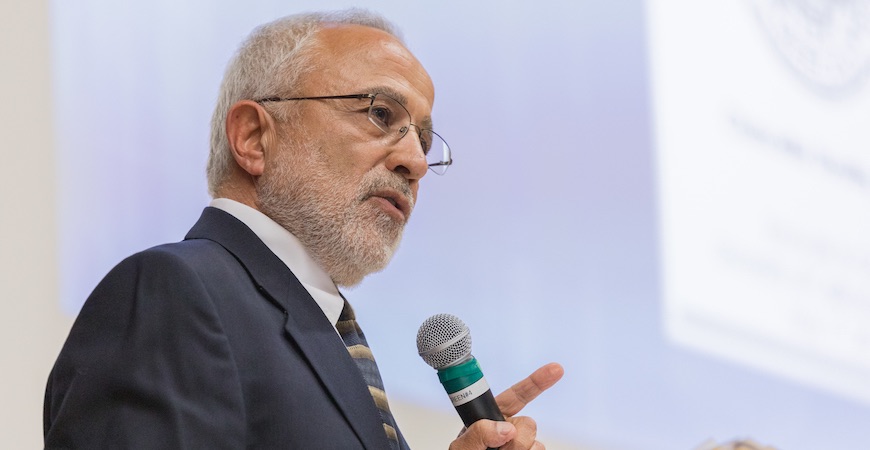
At UC Merced, research and education are inextricably intertwined – in the lab and in the classroom. Professors continually refine and advance their teaching methods and curriculum to convey knowledge, and to build the critical thinking skills that last throughout a lifetime.
Supporting these aims, the California Education Learning Lab has awarded a collaborative grant to UC Merced, CSU Bakersfield and Bakersfield College for “Improving Equity, Accessibility and Outcomes for STEM Gateway Courses.”
The grant, “California Challenges in STEM Energy Education,” will serve as a testbed for teaching strategies that reduce large educational equity gaps in STEM fields too often experienced by Hispanic and other underrepresented minority students who live in California's Central Valley.
“Our course will be all about the learners, about everyone getting the content of the class, with sensitivity to diverse styles of learning,” said Abbas Ghassemi, professor in the Department of Civil and Environmental Engineering and principal investigator for the grant.
“Professor Ghassemi’s grant truly demonstrates our commitment to providing an outstanding education for underrepresented minority students in the Central Valley,” Executive Vice Chancellor and Provost Gregg Camfield said. “This pilot program will lead to advancements in teaching that will enhance the transformational, world-class education we provide our students.”
Because most underrepresented minority students in California’s Central Valley enroll at UC Merced, CSU Bakersfield and Bakersfield College, the grant jointly supports the pilot of a course about the fundamentals of renewable energy and seeks to engage faculty at other San Joaquin Valley schools.
Ghassemi emphasizes the role of the instructor-as-facilitator by using student-generated learning — inside and outside the classroom — and by breaking a project into manageable pieces with the flexibility to support individual modes of learning. Using course evaluations throughout the semester, the instructor can modify assignments and exams to help students overcome their anxieties.
Innovations in experiential learning improve retention, encouraging students to go beyond simply meeting an obligation—and teaches them how to think —not what to think.
“Underrepresented minority students are hardworking and dedicated, so we give them the tools and skills they need for exponential growth,” said Ghassemi. “We get them engaged in activities that they didn’t believe they could do and show them how to succeed.”
Lorena Anderson

Senior Writer and Public Information Representative
Office: (209) 228-4406
Mobile: (209) 201-6255






